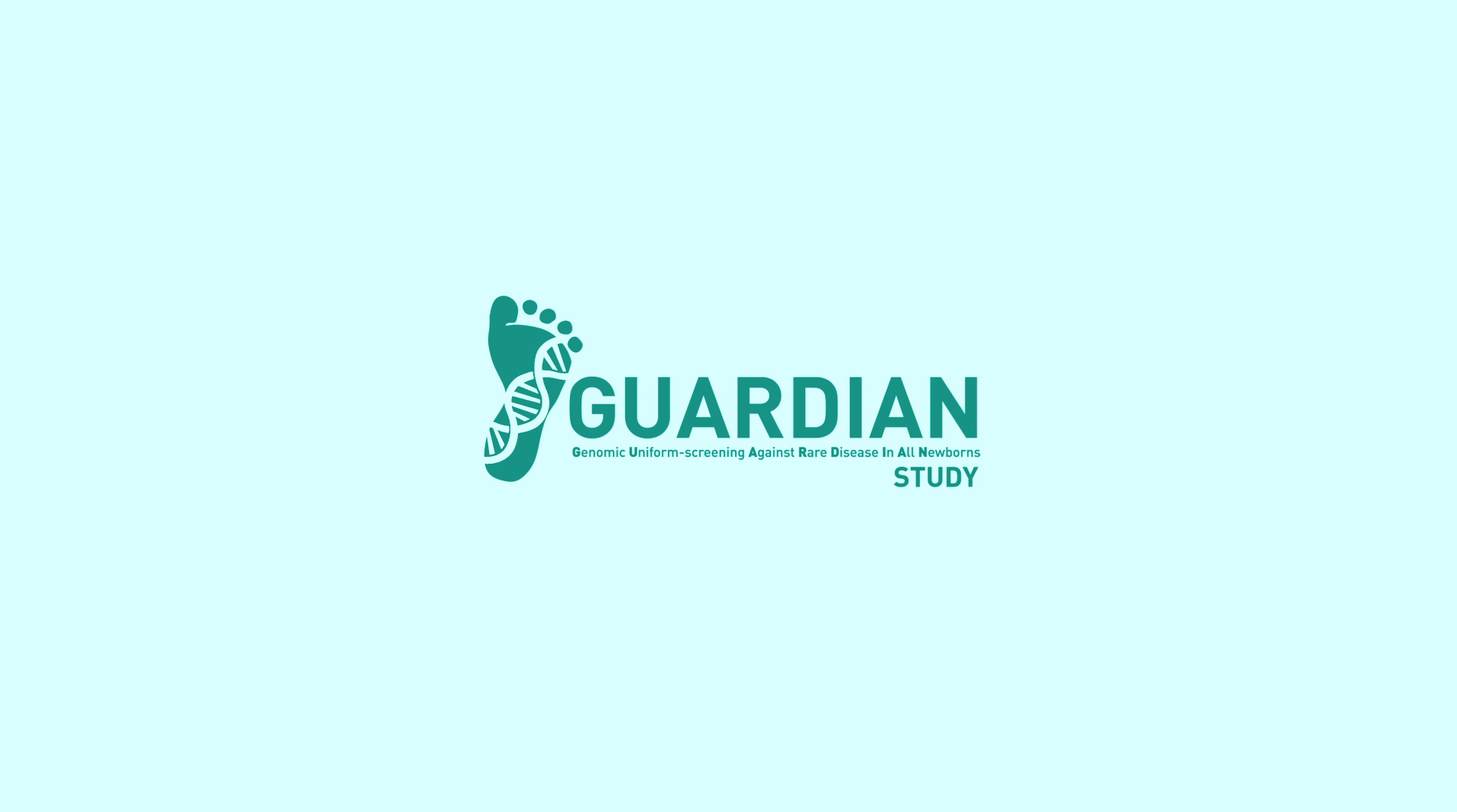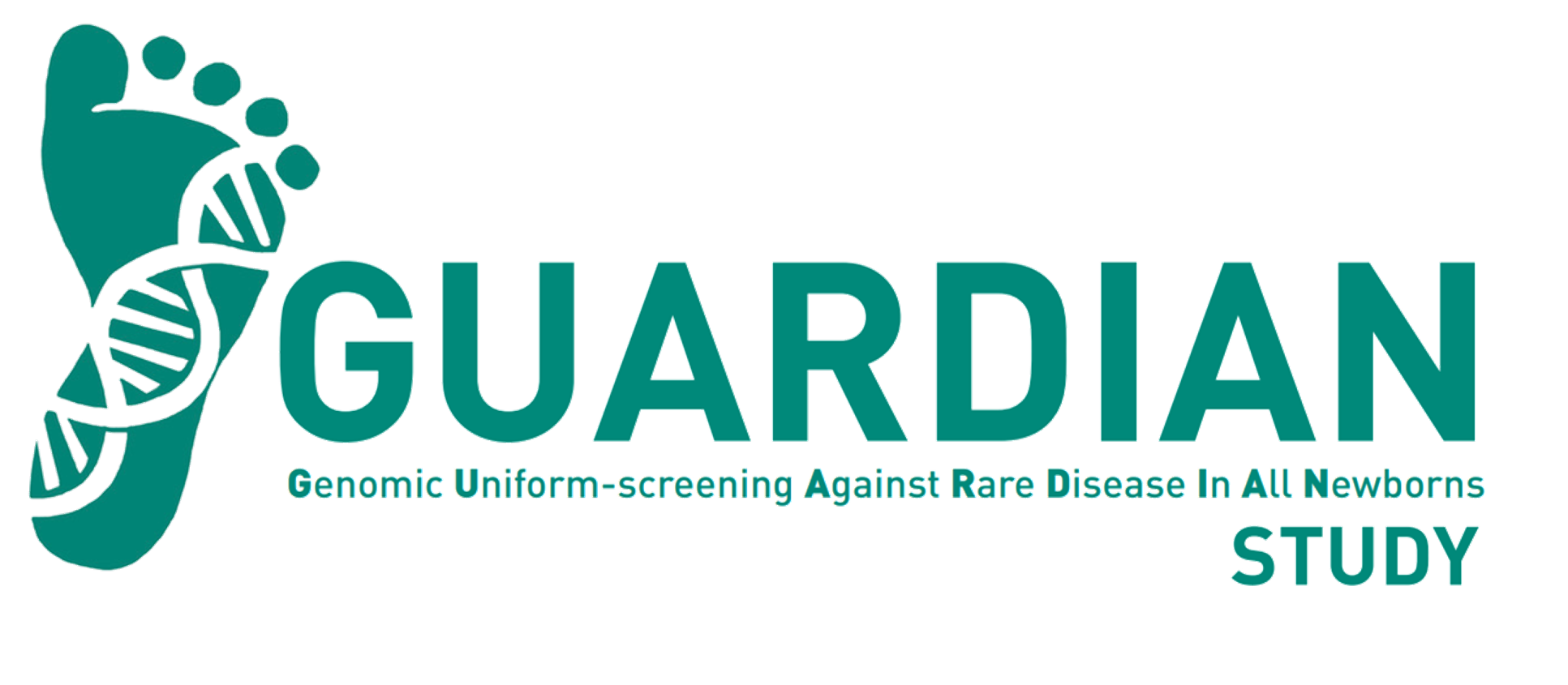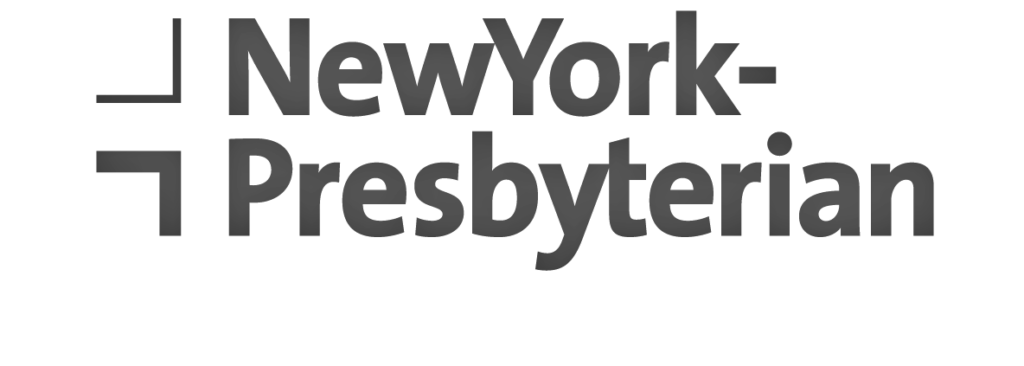What is The GUARDIAN Study?
GUARDIAN STUDY
GUARDIAN is a research study that screens newborns for over 450 genetic conditions not currently screened as part of standard newborn screening.
The purpose of this study is to find babies who have these conditions so they can have the best chance to live a healthier life. For the conditions that have treatment available, it is important to start it early.
The study is free. There is no cost to you or your insurance company.
Additional blood samples are NOT needed to participate in this study.
This study is different from the Standard Newborn Screening, also known as the Newborn Screening Program. This screening is done on all babies born in the US and tests for approximately 50 different conditions. It is free and routine for every newborn.
To learn more about Standard Newborn Screening, click here.
Download a 1-page flyer about the study (English or Spanish)
What Happens After the Test?
You will be contacted with the results of your baby’s screen in about 3-6 weeks. Learn more about what happens after the screen and the different possible results here.
Who is Eligible?
The study is being conducted at NewYork-Presbyterian Hospitals. If you plan to have your baby at one of these locations, you can sign up to talk to someone about the study while you are still pregnant. You will also be invited to be part of the study while you are in the hospital after you deliver your baby. You may also receive an email about the study.
What happens if my baby is part of the GUARDIAN study?

New and expecting parents who have their baby at one of the NewYork-Presbyterian hospitals can have their baby screened as part of the GUARDIAN study.
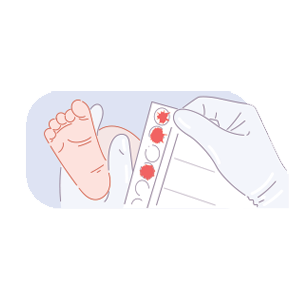
The GUARDIAN study is a free, optional study that screens your baby for about 450 additional genetic conditions using the same sample that is collected for standard newborn screening
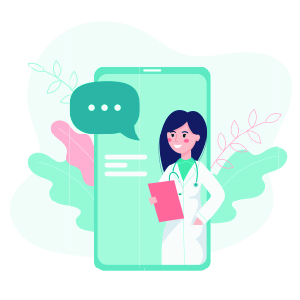
The GUARDIAN study team will contact you with the study results about 3-6 weeks after the sample is collected. You will receive your New York state newborn screening results separately. Most babies will screen negative. About 3-4 in 100 babies will screen positive.
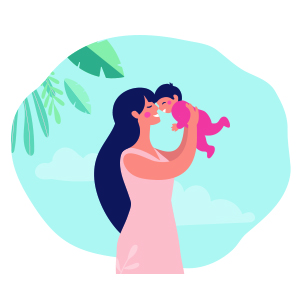
If your baby screens negative, there is a low chance your baby will develop one of the conditions, but the risk is not zero because no test is perfect.
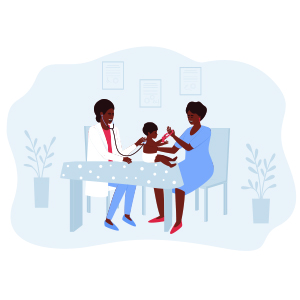
If your baby screens positive, there is a high chance your baby has the condition. A doctor will talk to you about the condition and help your baby to get any needed confirmatory testing and any recommended follow up care.

Including your baby in the GUARDIAN study will help you learn more information about the health of your baby and help doctors and researchers improve the health of all babies.
What Conditions are Tested?
The study screens approximately 450 conditions that are not included in standard newborn screening. For a more detailed discussion and a list of the conditions screened, click here.

